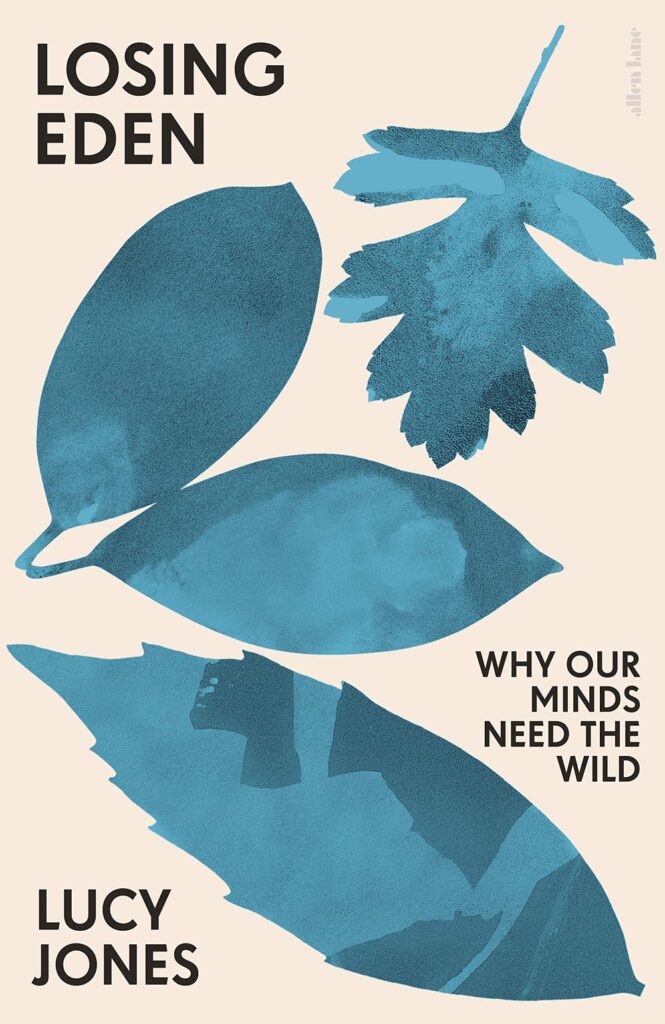Sharing my learnings from the book, Losing Eden by Lucy Jones
Losing Eden by Lucy Jones
Delicately observed and rigorously researched, Losing Eden is an enthralling journey through this new research, exploring how and why connecting with the living world can so drastically affect our health. Travelling from forest schools in East London to the Svalbard Global Seed Vault via primeval woodlands, Californian laboratories and ecotherapists’ couches, Jones takes us to the cutting edge of human biology, neuroscience and psychology, and discovers new ways of understanding our increasingly dysfunctional relationship with the earth.
Urgent and uplifting, Losing Eden is a rallying cry for a wilder way of life – for finding asylum in the soil and joy in the trees – which might just help us to save the living planet, as well as ourselves.

- most of us spend the majority of our time indoors these days and this alienation from the natural world is impacting our health.
- when Lucy Jones was recovering from alcoholism, four elements helped her start anew: psychotherapy, medication, community & nature.
- emerging scientific evidence shows that contact with natural environments actually promotes better mental and physical health on a cellular level.
- Us spending more time indoors and have limited exposure to the diverse organisms that make up the natural world is resulting in an extinction of experience, a term coined by American encologist & entomologist Robert Pyle. This leads to ignorance and lack of care for the planet which fuels the mental health problems that result from a more barren world
- biologist E.O. Wilson introduced the term biophilia pioneering the idea that humans have a genetically determined affinity for the natural world
- new research shows that we’re drawn to nature for reasons “rooted in the distant genetic past.”
- Forging a connection with nature in childhood is key to mental and physical development
- Contact with nature can help our systems maintain balance. Another way to ease stress is through the Japanese practice of shinrin-yoku or forest bathing (spending at least 2 hours in a forest & breathing deeply). Engaging with nature is hugely beneficial for mental health.
- people, and by extension societies, need connection with the natural world in order to flourish
- time spent in nature often falls on socioeconomic lines. People in lower socioeconomic groups have less access to natural areas. Equitable access to nature could reduce the socioeconomic health gap
- Our obsession with economic growth is destroying the planet and many lives. We can still repair our relationship with the natural world & raise our children to continue the fight to protect it.
- the way we think, write and talk about nature can reorient us toward our natural biophilia
- As the climate changes & the environment is compromised, we are increasingly trying to find cushions against the damage. To do real lasting change, we must amend how we design cities, enact legislation and consider our health. We need to restore our relationship with the earth – to see ourselves as part of the larger ecosystem, not as conquerors of it.


Leave a Reply